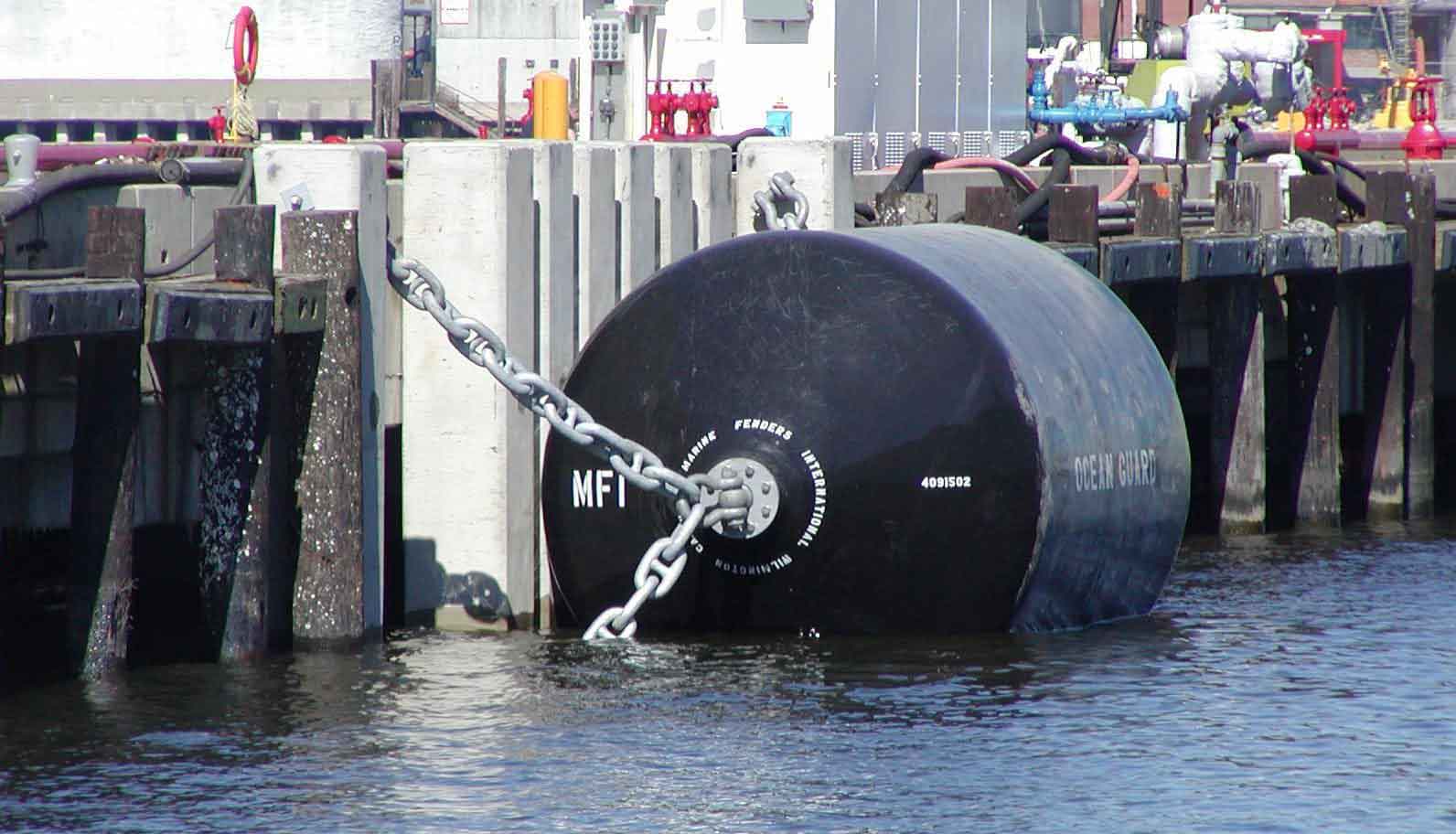Marine fendering, including pneumatic fenders, must be considered for safe and secure docking. They act like a cushion that absorbs the impact if a boat collides with the harbor. This, in return, saves both the ship and the dock from destruction. Without these fenders, damage may occur to both the boat and the dock. Pneumatic Fenders provide a soft landing filled with air or gas in order to reduce the force of impact. Having a softer landing, fenders offer a facile and safe way for a ship to berth by lessening the collision force and thereby reducing the possibility of ship and dock damage. That helps to avoid accidents and therefore saves money for repairs.
Furthermore, fenders also support ships during loading and offloading. They are devices that make docking very easy and efficient. In most cases, these marine fenders, including pneumatic fender plays a significant role in protecting ships, human resources, and the docks from damage during the docking process.
What Are Marine Fenders?
Marine fenders are extraordinary helpers to keep the ship and docks safe by being the absorbent of the big hit that a boat makes while it touches the dock. Fenders are like cushions that smoothen the impact. These objects are attached to docks, piers, and ships to offer protection. When a boat hits, the fender disperses the energy over the contact’s surface. This way, there’s a lot of help in preventing damage to the ship and even the dock. It’s akin to a shock absorber that keeps everything safe. These fenders are robust and can go through significant impacts. They make up one of the most essential facets of the docking process. Without fenders, boats and docks could really get badly damaged, but with fenders, docking is safer and more accessible.
Types of Marine Fenders
There are plenty of types of marine fenders. Each one is unique and designed for a particular use.
Rubber Fenders: These fenders are solid and durable. The forces imposed are enormous, and the fenders must be sturdy enough to handle them.
Foam Filled Fender: Foam Filled Fender is lightweight, flexible, and mainly maintained in small boats and docks.
Pneumatic Fenders are soft balloons in nature, filled with air or gas, and able to land gently.
Hydraulic Fenders are much more muscular and more rigid. They comprise special fluid that absorbs impact and keeps the boat and the dock safe.
Composite Fenders are large, extra resilient, and durable. They are made from a combination of materials and are perfect for big ships and docks.
Each form of Fender serves particular situations. The sort of fender to be employed is selected depending on the size, shape, and kind of ship and the design of the dock. This helps ensure safe and smooth mooring operations.
Advantages of Marine Fenders
Marine fenders serving with so many features gain a number of advantages like the following:
Prevention of Damage: Fenders protect ships and jetties from damage. They absorb the impact, keeping boats and jetties safe.
Safety: Fenders guarantee a safer berth. It enables accidents to be reduced and that people are safe.
Efficiency: The use of fenders makes berthing more functional. When boats or ships come to load and offload goods, they take the shortest time possible.
Cost Effective: Fenders influence monetary savings. They make boats and docks last longer, with minimal costs for regular repairs.
Other benefits are:
Lower Risk: The risks for damage and casualties are lowered with the use of fenders.
Higher Productivity: Fenders enable the ships to be operated more efficiently.
Longer lifespan: Fenders add life to boats and docks.
Peace of mind: Fenders give a sense of peace to the proprietors of ships and dock managers.
All of these make marine fenders very essential to keep safe and run docking operations more smoothly and cost-effectively.
Applications In Marine Fenders
To keep the docking operations safe and more efficient, marine fenders are applied in various places.
Port and Harbors
Marine fenders are also used in ports and harbors to absorb the berthing impact of large vessels, protecting them from damage to the dock and expensive maintenance costs.
Marinas
Fenders applied in marinas shield small boats and docks. These are specially designed to keep smaller vessels out of harm’s way, ensuring neither the ship nor the dock gets damaged.
Ship-to-Ship Transfer
Fenders are incorporated in ship-to-ship transfer operations to allow the safe transfer of cargo between the vessels involved in the operation.
Naval and Military
Naval and military vessels use marine fenders to help protect their ships and facilities from damage during berthing and docking.
Offshore Platforms
Fenders are used on the offshore platform to safeguard oil and gas operations. They help protect the platform and the vessels in case of damage.
Terminals
The marine fenders are used in the terminals and provide protection to the container and cargo terminals from damage. This helps ensure efficient and safe cargo handling.
Docks and Piers
Fenders prevent wear and tear on private and public docks and piers, avoiding damages that could jeopardize docking safety.
Repair and Maintenance
Since vessels are indispensable when they need repair and maintenance, marine fenders protect them from damage.
Conclusion
Marine fenders are paramount for safe and efficient docking. Additionally, ships and vessels are protected from damage, and the dock is preserved well from failure, thus guaranteeing people’s safety. Fenders also save time and money by cutting down on repair costs and downtimes. Picking the right fender will drastically minimize any possible damage and increase overall productivity. As a matter of fact, the right fender actually absorbs impact, minimizes stress on ships and docks, and makes it much easier to dock. This, in turn, results in quicker loading and unloading of cargo, less waiting time, and increased productivity. With the right fender, you would save a lot of time, money, and resources and further make your docking operation safe and smooth.
Stay in touch with us for more updates and alerts: Hintinsider




